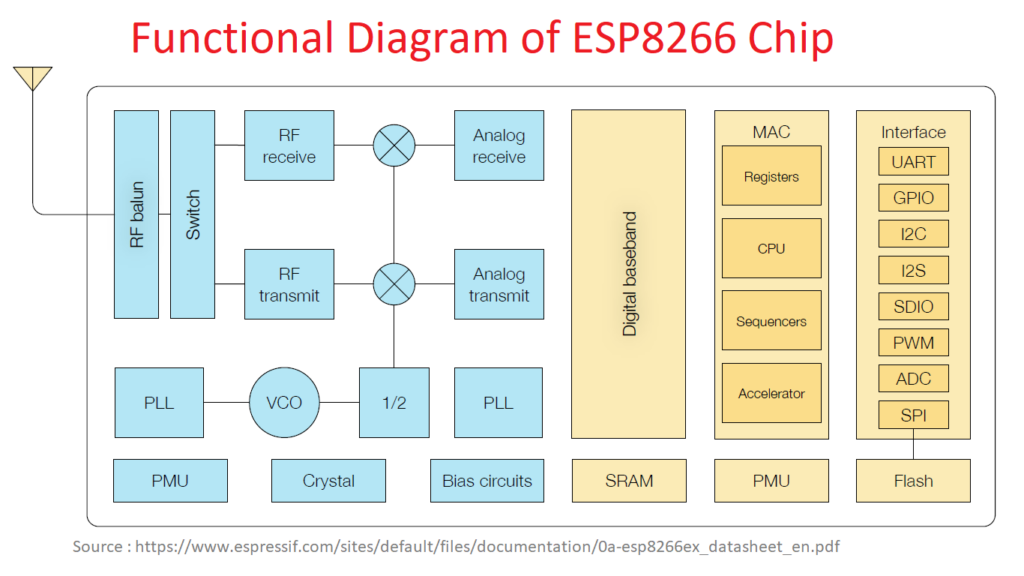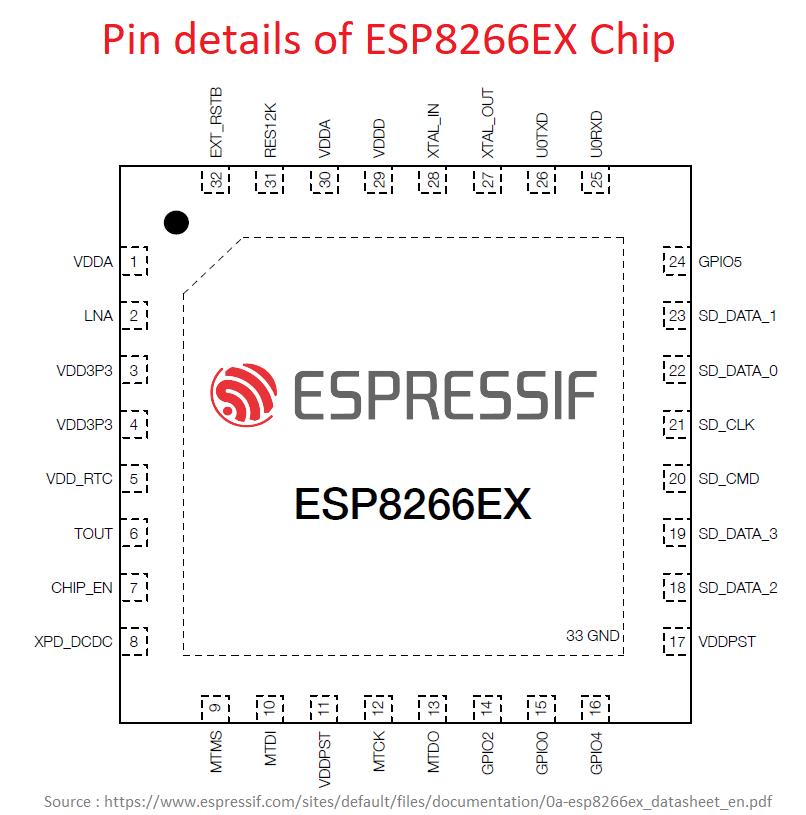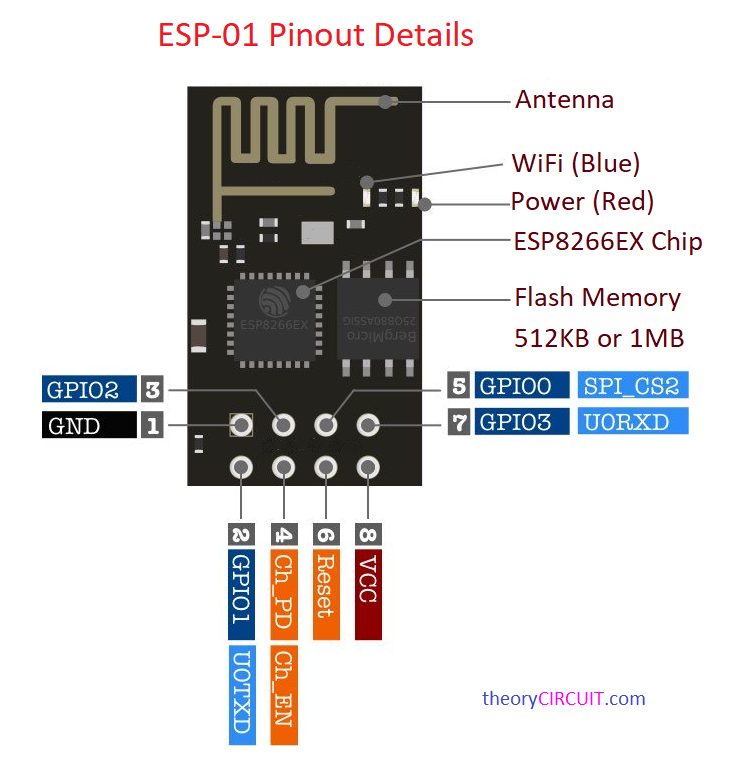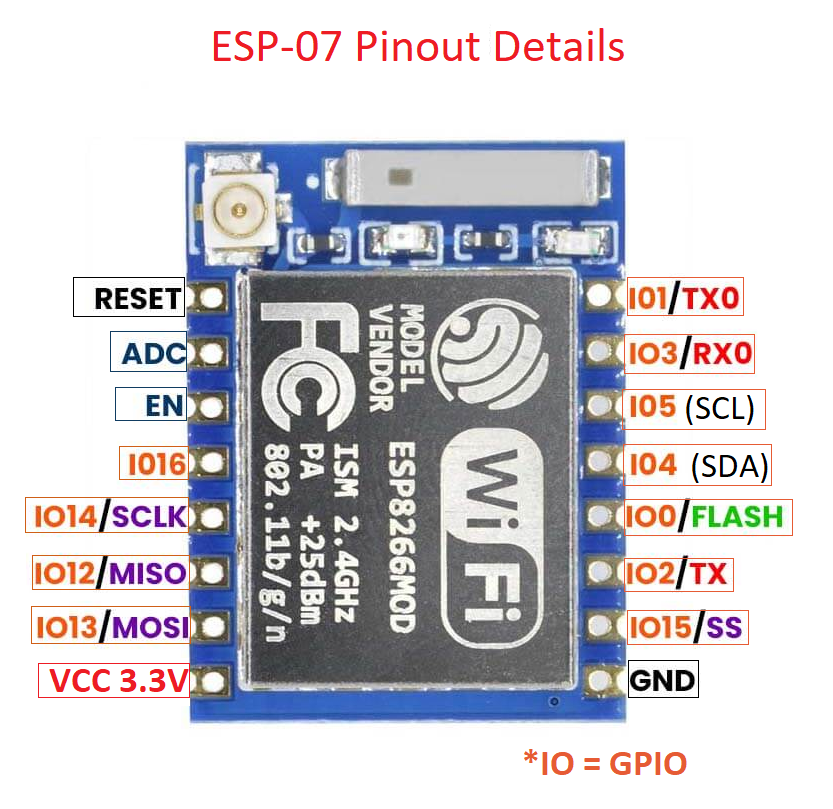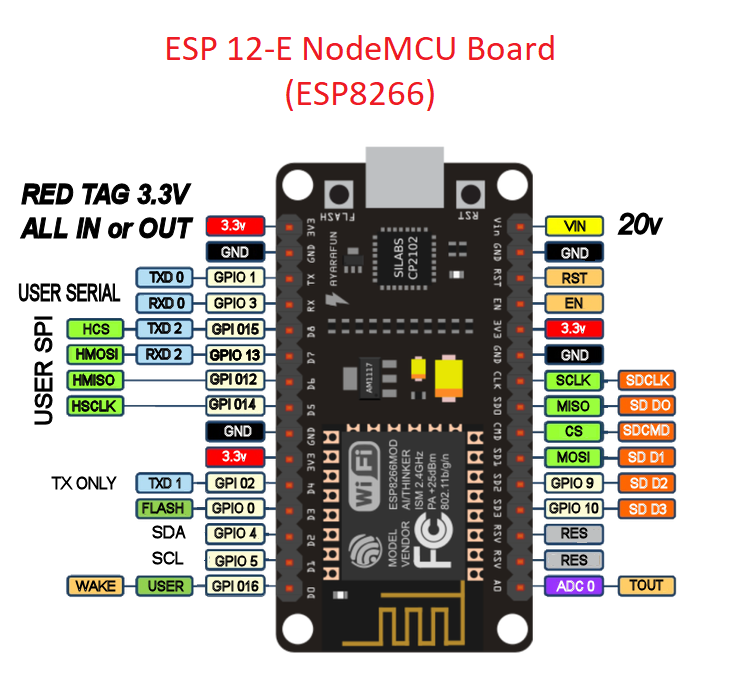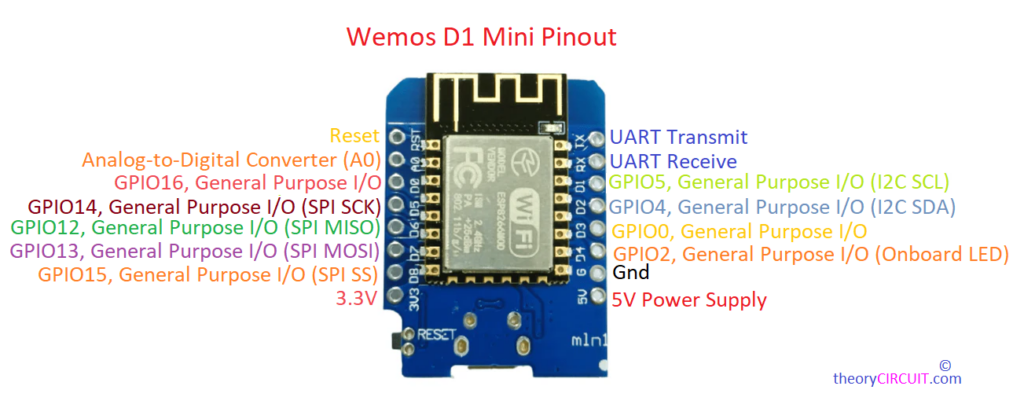Last Updated on July 29, 2024
The ESP8266 is a low cost Wi-Fi System on Chip (SoC) designed by Espressif Systems Semiconductor company. This product introducted to target Internet of Things industry, due to its features like full TCP/IP stack, microcontroller capability, efficient power usage, compact design and low cost makes this chip famous among all category electronics makers. It can be used to make simple Wi-Fi enabling device to complex IoT automation systems.
Different types of development boards featuring with ESP8266 available in the market, depends on applications and GPIO pin requirements we can choose. This SoC ESP8266 can be programmed using various platforms including Arduino IDE, Micropython and lua. So that hobbyist to professional people like to use ESP8266.
The ESP8266 chip contains Integrated Antenna switches, RF balun, power amplifier, low noise receive amplifier, filter and Power Management modules. So this chip requires minimal external components and circuitries. On chip Tensilica’s L106 diamond series 32-bit processor powers ESP8266 chip.
ESP8266 32-Pin QFN package
Refer datasheet for more specification details: https://www.espressif.com/sites/default/files/documentation/0a-esp8266ex_datasheet_en.pdf
Different types of development boards using ESP8266 chip.
- ESP-01
- ESP-07
- Node MCU ESP8266
- Wemos D1 Mini
ESP-01
ESP-07
Node MCU ESP8266
Wemos D1 Mini
Comparison table for the ESP-01, ESP-07, NodeMCU ESP8266, and Wemos D1 Mini boards.
| Feature | ESP-01 | ESP-07 | NodeMCU ESP8266 | Wemos D1 Mini |
|---|---|---|---|---|
| Microcontroller | ESP8266EX | ESP8266EX | ESP8266EX | ESP8266EX |
| Clock Speed | Up to 160 MHz | Up to 160 MHz | Up to 160 MHz | Up to 160 MHz |
| Flash Memory | 512 KB / 1 MB | 4 MB | 4 MB | 4 MB |
| GPIO Pins | 2 | 9 | 11 | 11 |
| Analog Input | None | 1 (ADC) | 1 (ADC) | 1 (ADC) |
| UART | 1 (TX/RX) | 1 (TX/RX) | 1 (TX/RX) | 1 (TX/RX) |
| SPI/I2C | No (Software I2C possible) | Yes (SPI, I2C) | Yes (SPI, I2C) | Yes (SPI, I2C) |
| Wi-Fi | 802.11 b/g/n | 802.11 b/g/n | 802.11 b/g/n | 802.11 b/g/n |
| Antenna | Integrated | External antenna connector | Integrated | Integrated |
| USB Interface | No | No | Yes (Micro-USB for programming) | Yes (Micro-USB for programming) |
| Power Supply | 3.3V | 3.3V | 5V (via USB) or 3.3V (VCC) | 5V (via USB) or 3.3V (VCC) |
| Size | 24.8 x 14.3 mm | 24.8 x 16.8 mm | 48.3 x 25.8 mm | 34.2 x 25.6 mm |
| Programming | Arduino IDE, Lua, MicroPython | Arduino IDE, Lua, MicroPython | Arduino IDE, Lua, MicroPython | Arduino IDE, Lua, MicroPython |
| Special Features | Compact, basic Wi-Fi capabilities | Shielded, enhanced range, reliable | Development board with USB-to-serial, many GPIOs | Compact, easy to use, compatible with shields |

